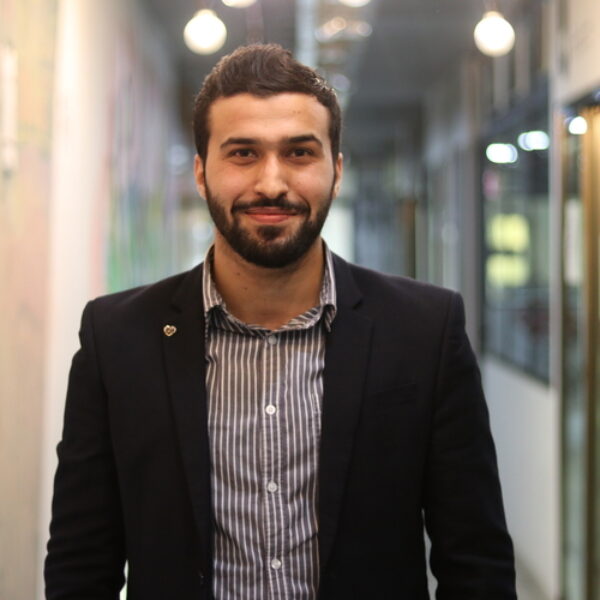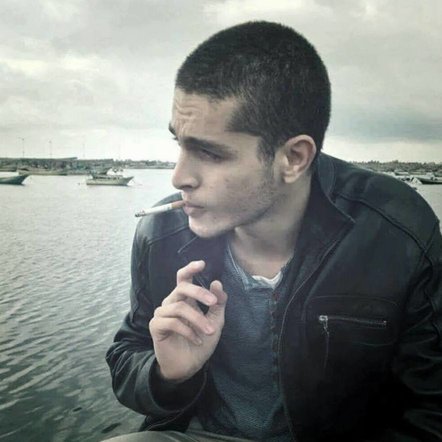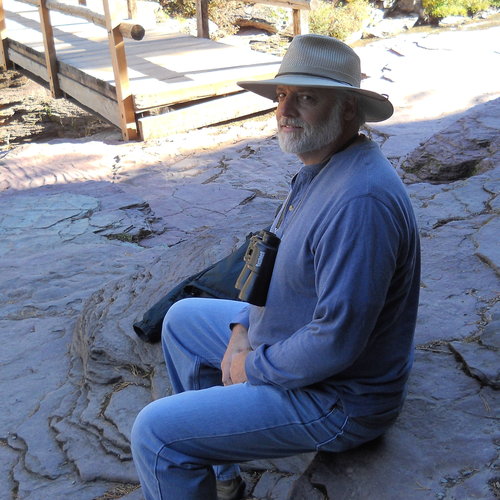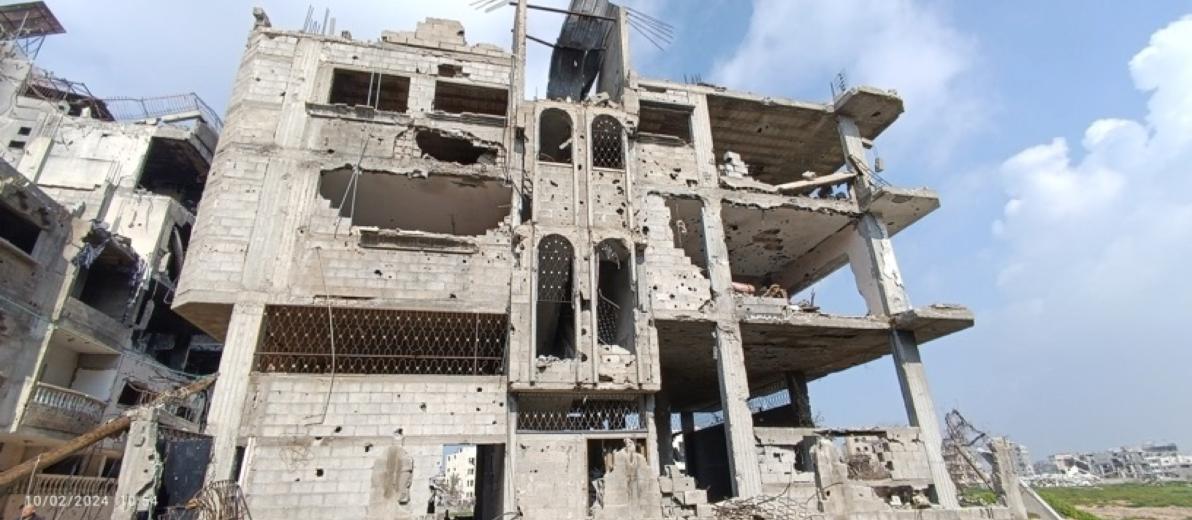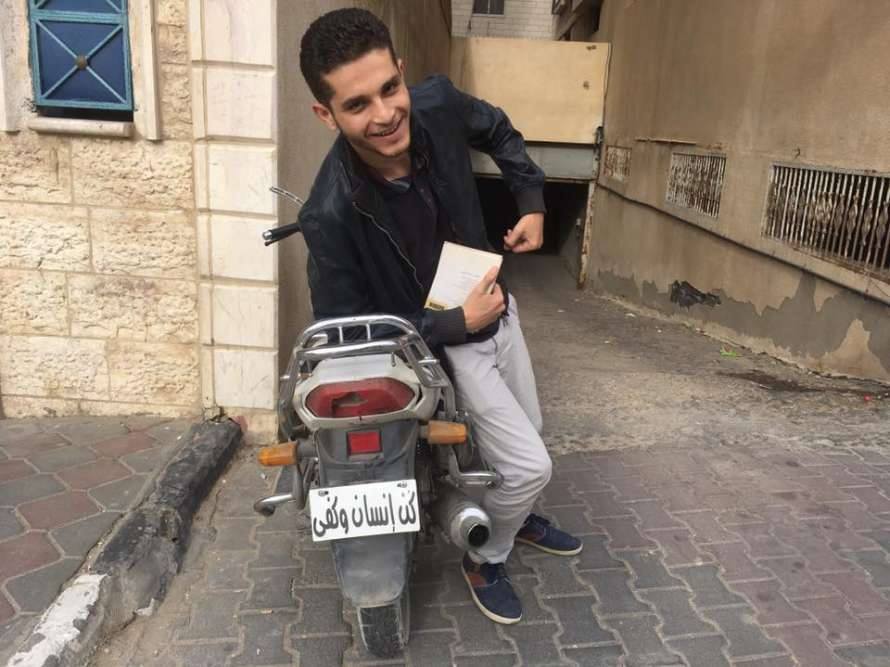
On Wednesday, August 29, Gaza woke up to news of the death of Muhannad Younis in the Tel Al-Hawa neighborhood. The 22-year-old short-fiction writer decided to escape this pain-filled place, leaving his sorrows, dreams, ambitions and goals inside the walls that guarded his broken heart.
Some of the contributors to Mohannad’s depression were unique—namely, a total rejection by his father. However, his despondency over his lack of future prospects are shared by all youth in Gaza. And when he took his own life, it was as if we had all failed to survive the disappointment. His death sent ripple effects throughout the Strip.
To talk about Muhannad’s decision to end his life, we must trace the roots of his deep sadness, which had grown in his heart since his childhood. Muhannad was 1 year old when his parents divorced—with his father wanting nothing to do with his ex-wife and soon starting a new family with someone else. Throughout his childhood, Mohanned lived with his mother, who never remarried.
Muhannad was a prolific writer. He wrote short stories about the trials of life and essays about such intellectual issues as why we need "individualism" in modern society. In one story that likely reflected his own troubled feelings about the lack of a father in his life, he created a tale about a young man who was befriended by a family who gave him a ride in their car.
Muhannad graduated with distinction from high school. However, his trauma began when he tried to convince his father, a relatively wealthy physician, to allow him to travel to Europe and study with his step-brother. His father refused to offer the same opportunity to study in Europe as he had his sons from his new wife. When Mohanned visited, his father asked him to leave the house.
Mohanned was forced to register at the local college of pharmacy, at his own cost; his father refused to help. Muhannad felt his life was spiraling downward. Most young people in Gaza come to feel the same way, since conflicts with their families are common, due mostly to the harsh economic situation; unemployment forces young people into conflict with their parents over finances.
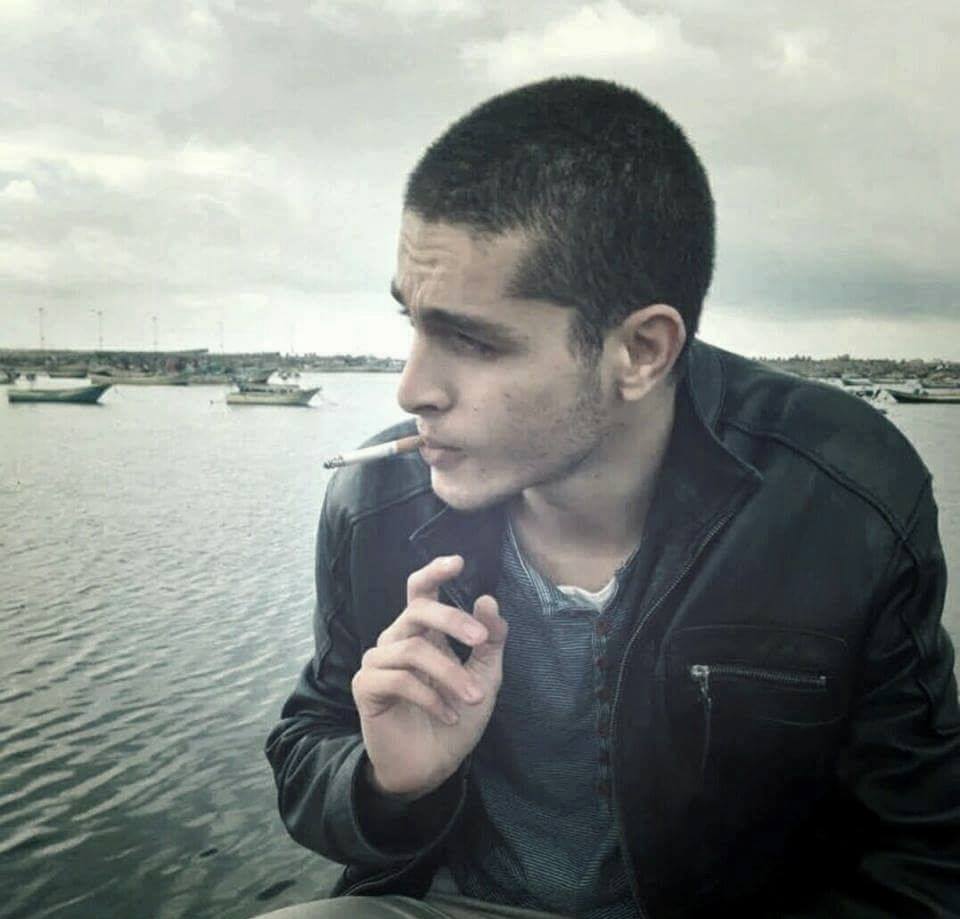
Muhannad became emotionally exhausted and began writing and talking about his pain and sense of futility. “I cannot feel natural feelings. It’s like not thinking about your feet while walking, understand? There are nights when I wake up terrified and go to my mother's room. I keep standing at the door. I do not enter, but I would like to tell her how much I love her, and then this feeling fades the next morning,” Mohannad explains in one of his journals.
Still, he was an excellent student in college, and he won many prizes in local competitions. He dreamed of sharing his stories at a TEDx. Finally, he earned a scholarship to study for a bachelor’s degree broad—paying for the higher-quality education his father would not fund. But Israeli officials denied him an exit permit. The loss of that scholarship devastated Muhannad; he felt Gaza was no longer a place where ambitions and dreams could be achieved. He was invited to many countries to participate in literary competitions, but was never able to get out. The Israeli occupation had him trapped.
Muhannad saw only one remaining flame of hope in his life. He was in love with a colleague, a medical student, and he wanted to marry her. Mohannad asked his father for help in proposing to his beloved, since marriage is not possible without a dowry, an apartment and other financial benefits. He was shocked again when his father refused to support him. Instead, his father demanded that Mohannad leave him alone. The finality of this rejection finally wore him out.
He began to think of suicide as a solution. In his journals, he often recorded his thoughts about his possible suicide: “I do not know why, but I cannot resist beauty. What if there is no more beauty? What if it is all a lie, and beauty is a hallucination, your interpretation of an ugly world? I feel I have lived a big lie, that I was deceived. Suicide will be more beautiful,” Mohannad wrote. “A few days ago, I was happy, and then I cried because I felt the danger of losing this happiness.”
The 22-year-old committed suicide because he could no longer cope as the crises in Gaza crashed over him like the waves of a polluted sea.
“God tells you that the game is over, and he says who wants to stay alive may, and who wants to commit suicide, may also,” Mohannad wrote that he believed, despite Islam’s prohibition. He was no longer able to see beauty in this life. Gradually, the lights of hope were turned off, and his dark thoughts of suicide became relentless, filling his head.
He began to deactivate his social media accounts because he did not want anyone to make him a hero after his death. He had been a severe critic of Gaza, and thus he was mentioned on Facebook often, and by many people.
Mohannad tried to commit suicide twice and failed. In his first two attempts, he wrote two letters, as if he were asking family and society to save him, but no one payed attention. His father simply mocked him—saying “you can’t even succeed at suicide.” With his third attempt, Mohannad proved him wrong. His body was found inside his room, where he had swallowed pills and put a black bag, filled with poisonous gas, over his head, according to the police.
If you read the story “Confessions and Hallucinations,” by Mohannad, you will recognize the depth and intensity of depression he experienced. Every single word in his story speaks clearly of how depressed and distraught he was. What breaks the heart most is what his mother said later: "The fate came silently. It was stronger than me. It stole from me the most precious thing I have. I became as cold and gloomy as a dim sun, as if the sky had been adorned with the light of his angelic face, but was no more.”
Most of Mohannad’s friends were unable to speak after the shock of losing him. That shock also touched many other residents in Gaza who had not yet recovered from the sudden (natural) death of artist Mu'adh al-Haj.
“Lately, it seems like youths are dying in mysterious circumstances and one cannot really explain the degree of misery,” says one of my friends, Mohammed.
People in Gaza often use that phrase: “mysterious circumstances.” We know what is happening and why, however. Another friend, Monier Keibo, says, “What is happening in Gaza is very worrying, and young people are really in trouble.” And still another, Mohammed Diab, adds, “I fear we will see more suicides in the coming days. Life has become an unbearable hell.”
Unfortunately, stigma and lack of trust prevent youths from seeking help, and a scarcity of qualified mental health personnel makes relief elusive even if they do. A specialist at the Gaza Community Mental Health Program, Zahia Al-Qara, says “the new generation does not have any special sources of support during unemployment and family violence.”
As for what I think: Mohannad wasn’t courageous when he chose to leave this absurd life, but he also wasn’t a coward. He was depressed, and depression kills. The lack of freedom kills. The lack of hope kills. The inhuman and absurd reality of Gaza kills. Who will save the youths of Gaza from this nightmare that destroys their dreams and hopes of a better life?

